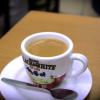-
Welcome to the eG Forums, a service of the eGullet Society for Culinary Arts & Letters. The Society is a 501(c)3 not-for-profit organization dedicated to the advancement of the culinary arts. These advertising-free forums are provided free of charge through donations from Society members. Anyone may read the forums, but to post you must create a free account.
Experiment: Cook stuff in salted water
-
Similar Content
-
- 78 replies
- 18,999 views
-
- 1,215 replies
- 197,371 views
-
- 341 replies
- 93,462 views
-
- 462 replies
- 158,423 views
-
- 9 replies
- 721 views
-
-
Recently Browsing 0 members
- No registered users viewing this page.






Recommended Posts